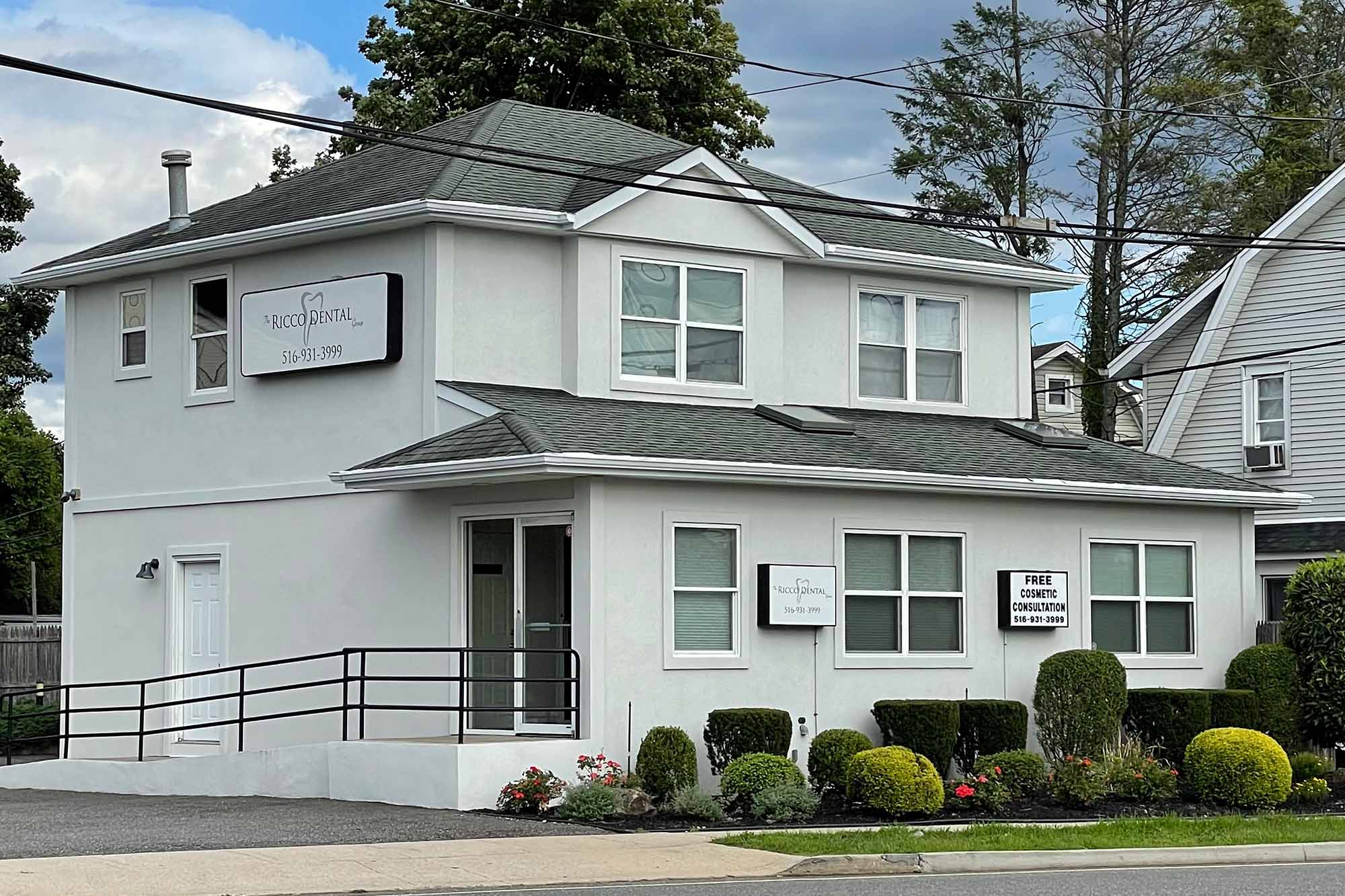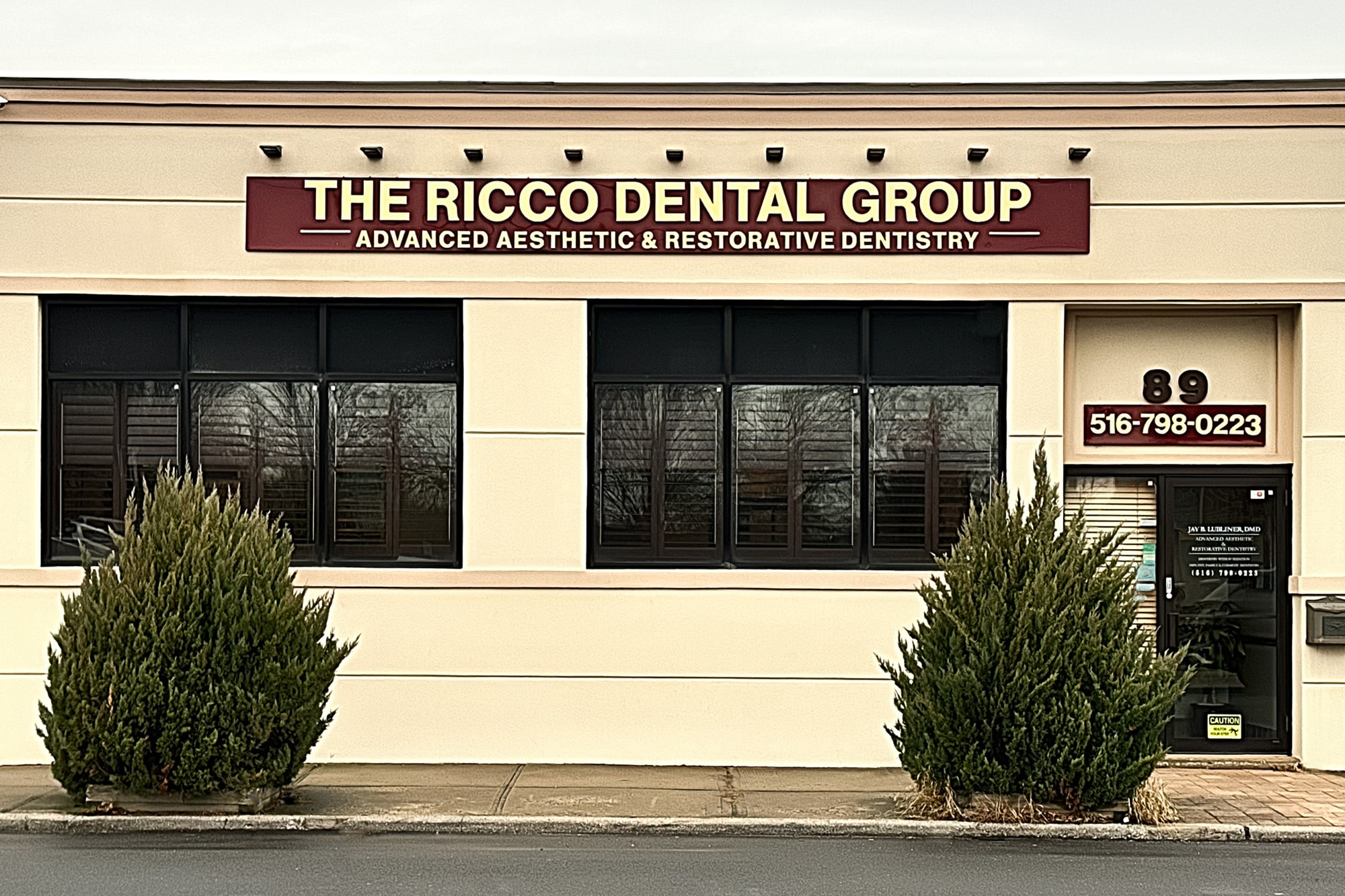
The Ricco Dental Group provides sedation dentistry for patients on Long Island, NY. Contact our offices in Massapequa or Plainview, NY to learn more.
Conscious Oral Sedation
Conscious oral sedation is an alternative minimal sedation that allows you to remain awake but relaxed. For people who fear dental procedures, conscious sedation may help take away some of the anxiety.
Nitrous Oxide
Nitrous oxide, sometimes referred to as “laughing gas,” is an effective and safe sedation agent that is inhaled through a mask that fits over your nose to help you relax. Mixed with oxygen, nitrous oxide allows you to breathe normally through your nose, and within minutes you should start to feel the effects. You may feel light-headed or a tingling in your arms and legs. Some patients comment that their legs and arms feel heavy. Ultimately, you should feel comfortable and calm. The effects of nitrous oxide wear off quickly after the small mask is removed. Talk to the doctor about whether nitrous oxide would be a good option for you.
Contact Us
To learn more or to schedule an appointment, contact us or call 516-931-3999 for our Plainview, NY office or 516-798-0223 for our Massapequa, NY office.




